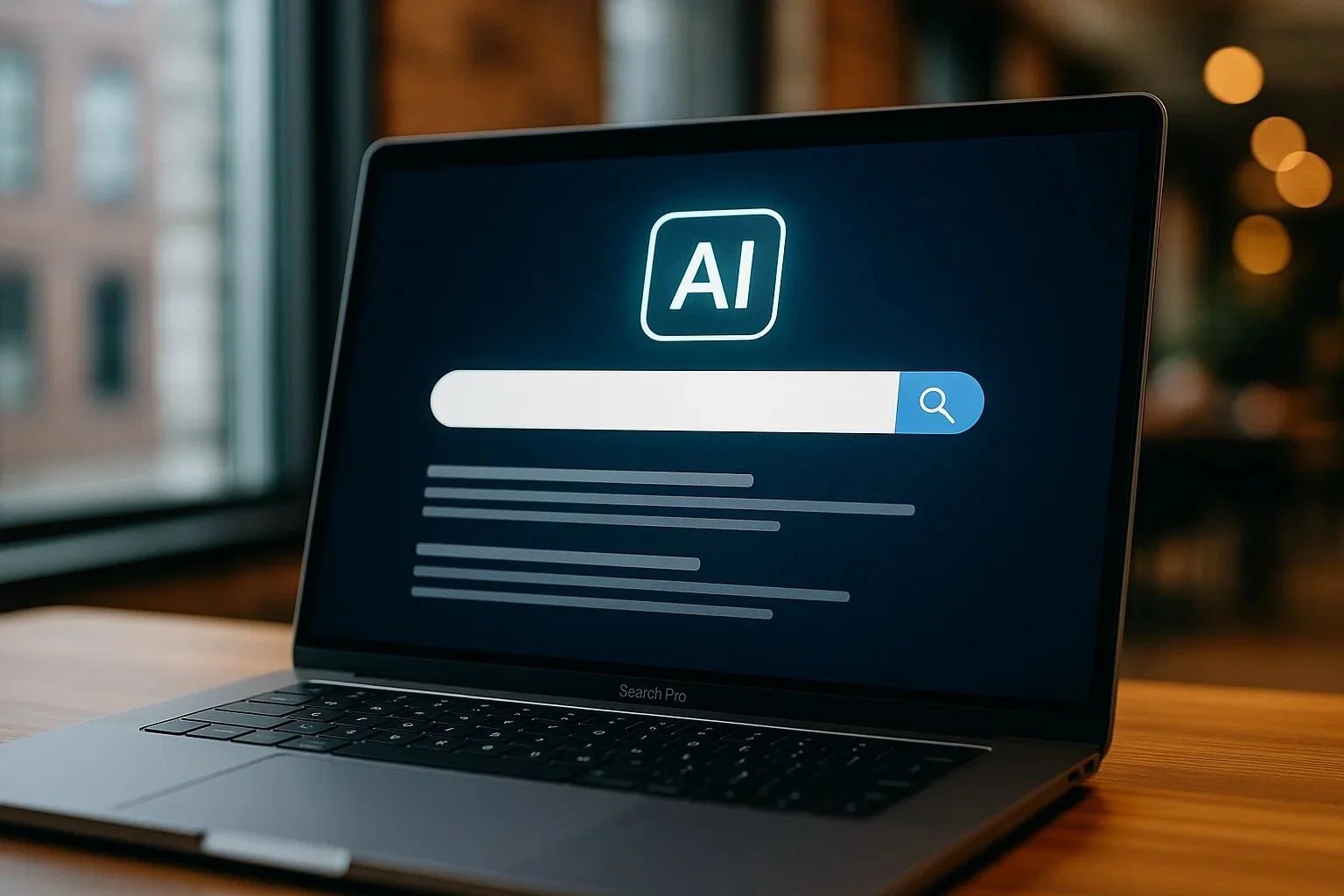How are search engines transforming in the AI-first world of 2025?
The state of search engines in 2025 is changing fast as artificial intelligence (AI) technologies are assuming the central role of driving search innovation. The traditional keyword-centric search paradigm is giving way to AI-driven, intent-oriented, and multimodal search experiences. This shift is revolutionizing the way users ask questions, how results get delivered, and how businesses optimize for visibility. This blog examines the most important ways search engines are evolving in the AI-first era of 2025 and its implications for brands and marketers.
From Keywords to Intent Understanding
Search engines in 2025 are dependent on sophisticated AI models that can understand user intent, not just keyword matching. Machine learning algorithms examine search queries in context, understanding conversational context, and returning accurate, relevant results.
Google's Search Generative Experience (SGE), driven by the Gemini large language models, is a prime example of this transformation as it provides in-depth AI-generated answers and summaries in search results, cutting down on users' needs to scour several links. This heightened understanding allows search engines to easily process sophisticated, multimodal queries that include text, images, audio, and video inputs.
Marketers and companies need to align content strategies accordingly, aiming to develop rich, authoritative, and contextually relevant content that AI finds trustworthy and valuable.
Personalization and Real-Time Relevance
AI allows search engines to serve hyper-personalized results on the basis of an array of factors such as location, search history, device, and real-time user activity. AI-powered local search is changing from basic map listings to dynamic, intent-led ecosystems that personalize customer discovery and engagement.
For instance, local small businesses like Sparkly Maid NYC and Sparkly Maid Orlando utilize AI-powered local SEO strategies to engage targeted audiences better by tapping into personalized content and customer information. Real-time relevance of this nature generates greater engagement and conversion rates in highly competitive local markets.
Companies collaborating with agencies such as Torres Digital Marketing Chicago gain significantly by incorporating AI tools to maximize local visibility, customize content, and track ROI better.
Multimodal Search and the Emergence of AI-Powered Assistants
The incorporation of multimodal functionality—text, images, audio, and video—into search engines is redefining the user experience. Search engines powered by AI expand beyond text-based queries; they recognize images or voice and produce responses that synthesize multiple types of data for more complete, richer responses.
Google AI Mode, which rolled out in 2025, turns search into an interactive chat where users can pose multi-layered questions through voice or images and get conversational, AI-created answers. This bringing of AI assistants to the fold of search engines is making search more intuitive, fun, and interactive.
Advertisers and marketers need to optimize well-performing content on these multimodal inputs such that their brands are visible in both voice and visual search as well as their usual text searches. This is a new terrain that needs a mature approach combining art and artificial intelligence data insights.
AI Disrupting SEO and Content Strategies
As AI reshapes search engines, SEO strategies are undergoing a profound transformation. Traditional tactics like keyword stuffing and backlink spamming are ineffective against AI’s refined algorithms that prioritize content quality, user experience, and expertise.
SEO tools with AI capabilities provide predictive analytics and automatic content optimization to enable marketers to remain ahead. They are able to scan large databases and find changing trends, content gaps, and high-potential keywords—enabling brands to remain visible in an AI-driven search environment.
Torres Digital Marketing Chicago and other agencies integrate AI in their content and SEO strategies, balancing the machine learning data with human imagination to create relevance and authoritative online presence.
Ethical Considerations and Trust in AI-Driven Search
With AI’s increasing role in search comes responsibility. Ensuring transparency in how AI-generated content is created and presented becomes critical to maintaining trust. Search engines must balance AI-powered convenience with accurate source attribution and guard against misinformation.
For users, it's based on the trustworthiness of the content AI produces, so E-E-A-T Expertise, Experience, Authority, and Trustworthiness—are priorities marketers need to emphasize when creating content for compliance with AI standards.
Those companies that succeed in these ethics will have more resilient, long-term relationships with their audience during the AI-first search era.
Intelligent Search Evolution
Search engines of 2025 are evolving from mere keyword-match tools into smart, AI-driven platforms that provide personalized, context-sensitive, and multimodal search experiences. This AI-first transformation requires marketers and brands to reimagine SEO, content strategy, and customer engagement to succeed.
Local businesses like Sparkly Maid NYC and Sparkly Maid Orlando leverage AI-powered local SEO, whereas agencies like Torres Digital Marketing Chicago innovate at the intersection of AI tools and human thought for maximum visibility and interaction.
The AI revolution in search is not merely about quicker answers it's about richer understanding and more intelligent interaction, building a new future of digital discovery on artificial intelligence.
